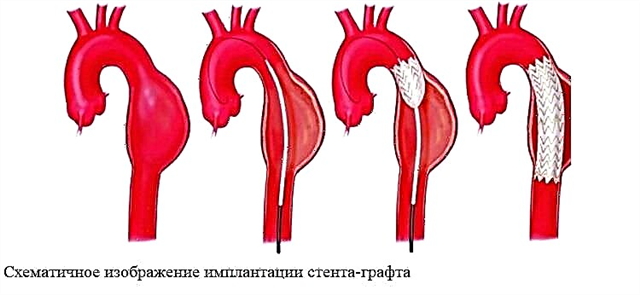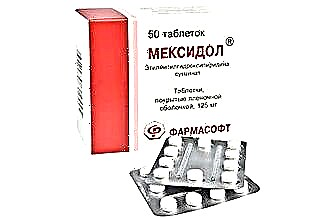Pharyngitis is diagnosed if the mucous membrane on the back of the throat is inflamed. It is diagnosed more often in adults than in children. According to the type of pathogen that caused this disease, there are viral, bacterial, allergic and fungal pharyngitis. Note that the occurrence of 70% of all pharyngitis is provoked by viruses. And only 25% are harmful bacteria.
Antibiotics for pharyngitis should be used only if the disease is of bacterial origin or if a viral infection is complicated by a bacterial one. Let's try to figure out which antibiotic for pharyngitis in adults can be used for bacterial infection. It is also important to know how pharyngitis should be treated with antibiotics.
When to use
 If the immune system of an adult is in perfect order, he will transfer pharyngitis of viral origin quite easily. It is impractical to treat this form of the disease with antibacterial drugs, since they are powerless against viruses. However, if the body is weakened, then a bacterial infection (staphylococcal, streptococcal or pneumococcal) can overlap with a viral one for about 3-5 days of illness. In this case, pharyngitis will be much more difficult. Moreover, there will be a risk of serious consequences. When the danger of complications of the disease with tracheitis, bronchitis, pneumonia, purulent otitis media and tonsillitis becomes obvious, the doctor prescribes antibiotic treatment for the patient.
If the immune system of an adult is in perfect order, he will transfer pharyngitis of viral origin quite easily. It is impractical to treat this form of the disease with antibacterial drugs, since they are powerless against viruses. However, if the body is weakened, then a bacterial infection (staphylococcal, streptococcal or pneumococcal) can overlap with a viral one for about 3-5 days of illness. In this case, pharyngitis will be much more difficult. Moreover, there will be a risk of serious consequences. When the danger of complications of the disease with tracheitis, bronchitis, pneumonia, purulent otitis media and tonsillitis becomes obvious, the doctor prescribes antibiotic treatment for the patient.
A qualified doctor does not prescribe antibacterial drugs to adult patients at the first symptoms. Indeed, at the beginning of the disease, it is extremely difficult to predict how it will develop, and to find out the origin of the pathogen. Both viral and bacterial inflammation of the pharynx initially proceed in exactly the same way.
Antibiotic therapy can be started only after it is clearly visible that this is bacterial pharyngitis. Signs of a viral, as a rule, smoothed out as early as 4-5 days, and a dry cough at this time turns into a wet one. In this case, the symptoms and treatment of the disease are closely related.
General or local remedies
Antibiotics prescribed to adult patients for pharyngitis are divided, depending on the effect, into 2 types:
- general;
- local.
Medicines that provide a general effect on the body are used for complex treatment. As a rule, these are tablets and capsules. They are effective if there is a general infection of the body with harmful bacteria. In this case, pharyngitis is a consequence of the development of any general disease. It can appear as a complication of bacterial rhinitis, otitis media, or bronchitis.
 Local remedies are used for more targeted treatment. Their use is justified if the area of infection is not very large. Note that the mucous membrane of the back of the throat can also become inflamed due to a violation of the microflora. This inflammation has nothing to do with infection by pathogenic bacteria. This means that it can be treated with antibacterial drugs that provide local effects.
Local remedies are used for more targeted treatment. Their use is justified if the area of infection is not very large. Note that the mucous membrane of the back of the throat can also become inflamed due to a violation of the microflora. This inflammation has nothing to do with infection by pathogenic bacteria. This means that it can be treated with antibacterial drugs that provide local effects.
Among the drugs in this category, it is most convenient to use aerosols for irrigating the larynx and sucking tablets.
Since local preparations have an exclusively local effect, the microflora of the gastrointestinal tract does not suffer from them. It is possible to treat pharyngitis with the help of such drugs with diagnosed renal or hepatic insufficiency, as well as with a ban on taking general action drugs. Sucking pills are often prescribed during pregnancy, since general therapy is contraindicated for women in position.
General antibacterial drugs are generally prescribed if the disease is severe. True, if there are problems with the organs of the excretory system, it is prohibited to take them.
Most often, with pharyngitis of bacterial origin, local antibiotics are prescribed - sprays and lozenges.
Local antibiotics
As already mentioned, topical pharyngitis drugs work exclusively locally. They are aimed at destroying harmful microorganisms only in the zone of influence - directly in the throat. Such drugs are produced mainly in aerosol form. Antibiotics for pharyngitis in adults and their names are recommended and prescribed by a doctor. We list those that are most often prescribed:
 Miramistin. It must be said that this is not an antibacterial, but an antiseptic drug. This tool destroys pathogenic bacteria in the process of contact with them. In addition, it prevents them from reproducing. Miramistin is produced in the form of an aerosol, which needs to be irrigated into the throat 4 to 6 times a day. Anything to drink or eat immediately after irrigation is highly undesirable. The medicinal composition will simply come off the mucous membrane along with liquid or food - in this case, its effect will be insufficient. This medication is recommended for use in combination with an antibiotic.
Miramistin. It must be said that this is not an antibacterial, but an antiseptic drug. This tool destroys pathogenic bacteria in the process of contact with them. In addition, it prevents them from reproducing. Miramistin is produced in the form of an aerosol, which needs to be irrigated into the throat 4 to 6 times a day. Anything to drink or eat immediately after irrigation is highly undesirable. The medicinal composition will simply come off the mucous membrane along with liquid or food - in this case, its effect will be insufficient. This medication is recommended for use in combination with an antibiotic.- "Cameton". This is a conditionally antibacterial drug. It consists of several active ingredients that have antibacterial, antiseptic, anesthetic and anti-inflammatory effects. The aerosol must be sprayed into the throat - for this it will be enough to make 2-3 presses (do not forget to inhale deeply so that the medicine gets into the pharyngeal cavity). This inhalation should be done three times a day. "Cameton" copes well with pharyngitis and other inflammatory diseases of the upper respiratory tract. He has practically no contraindications (the only exception is childhood) and side effects.
- Bioparox. The active ingredient of this antibiotic is fusanfugin. It successfully eliminates many microorganisms that provoke pharyngitis. In addition to local antibacterial action, this medicine eliminates puffiness and stops the inflammatory process. Adults should spray Bioparox down the throat every 4 hours. One session involves 4 presses, which must be combined with a simultaneous deep breath.
- "Hexaliz". It is a combined antibiotic that has both antibacterial, anti-inflammatory and analgesic effects. Its active substance (biclotymol) successfully fights streptococci, staphylococci and other harmful microorganisms. The daily dosage for adults is 6-8 tablets, which must be absorbed. You can't bite through them - you need to wait until they completely dissolve.
General action drugs
 Treatment of pharyngitis in adults with antibacterial agents of general action is prescribed only with a severe course of the disease. Often, in this case, the doctor prescribes penicillins (the preferred category), cephalosporins, macrolides and lincosamides. Let's name the most effective drugs:
Treatment of pharyngitis in adults with antibacterial agents of general action is prescribed only with a severe course of the disease. Often, in this case, the doctor prescribes penicillins (the preferred category), cephalosporins, macrolides and lincosamides. Let's name the most effective drugs:
- "Amoxicillin" is an antibiotic from the penicillin category. Produced in tablets or capsules. The dosage can be different - it depends on how severe the pharyngitis is. As a rule, adults are prescribed to take "Amoxicillin" 500 mg 3 times a day. The drug is contraindicated in women feeding a child with breast milk, as well as in infectious mononucleosis and individual intolerance to the components of the drug. Conjunctivitis, fever, swelling, and hives may happen with this drug in some cases.
- Cefadroxil. This agent belongs to cephalosporins. The course of treatment for pharyngitis with such a drug is from 7 to 10 days.The adult dosage is 1 g per day (it is advisable to take this dose not immediately, but in 2 doses). The “Cefadroxil” capsule must be swallowed and washed down with a sufficient amount of water. The use of this medication is not tied to food intake, which is very convenient.
- "Azithromycin" is a drug from the category of macrolides. The course of treatment with this drug is at least 3 and maximum 5 days. For pharyngitis and bacterial infections affecting the upper respiratory tract, adults should take "Azithromycin" 0.5 g per day. It is important to do it right: an hour before a meal or 2 hours after the end of a meal.
- Lincomycin. Refers to lincosamides and successfully fights various diseases of the nasopharynx. The dosage is determined by the doctor, taking into account the patient's weight. The specificity of taking this remedy is identical to the rules for taking "Azithromycin" - an hour before or a couple of hours after a meal. When swallowing a capsule, drink it with a glass of water.
If you treat pharyngitis and apply antibiotics in a timely manner and correctly, then the disease will be quickly defeated, and the risk of complications will be minimized.
How to take with pharyngitis
In order for antibiotic therapy to be actually effective and safe for the body, it is necessary to strictly adhere to the rules for the use of these drugs.
 The duration of the course of treatment and the dosage can be determined exclusively by the attending physician. You cannot be arbitrary. There are too many nuances that must be taken into account - for example, the age of the patient, concomitant diseases, the presence of an individual intolerance to the components of the drug or the absence of such, pregnancy, and so on.
The duration of the course of treatment and the dosage can be determined exclusively by the attending physician. You cannot be arbitrary. There are too many nuances that must be taken into account - for example, the age of the patient, concomitant diseases, the presence of an individual intolerance to the components of the drug or the absence of such, pregnancy, and so on.- The course of treatment must be completed. It is forbidden to interrupt the intake of antibiotics even if all symptoms of the disease have disappeared. If the course of treatment is interrupted, the risk of relapse increases significantly (occurs in 97% of cases). Unkilled bacteria begin to multiply and spread with renewed vigor.
- It is strictly forbidden to combine the intake of antibacterial agents with alcoholic beverages and other medications (some). You can read about the incompatibility of drugs in the instructions or ask your doctor.
- When the doctor prescribes the capsule form, they should be taken about an hour before a meal. If you forget, you will have to withstand a couple of hours after the meal and only then swallow the capsule. It is permissible to drink capsule antibiotics only with water, and in large quantities. Juices and other liquids are not suitable. Medicines in the form of aerosols and sucking tablets should be taken only after meals. After irrigation of the throat or resorption of the tablet, it is allowed to eat or drink only after 2 hours.
- When irrigating the pharynx with an aerosol, it is imperative to take a deep breath. This is necessary to enhance the effect and more even distribution of the drug over the pharyngeal mucosa.
The standard duration of antibiotic treatment is no more than 10 days. There are medications that are not recommended to be taken longer than 3-5 days. If a couple of days after the start of taking the desired effect is absent, the doctor must make adjustments to the regimen prescribed by him.
Let's summarize
 Pharyngitis is considered a relatively safe disease for health and life. However, this does not mean at all that it can be left untreated, hoping that it will go away on its own.
Pharyngitis is considered a relatively safe disease for health and life. However, this does not mean at all that it can be left untreated, hoping that it will go away on its own.
If the temperature rises, symptoms of general intoxication are observed, you should not give up the antibiotics prescribed by your doctor. After all, only they can quickly and effectively eliminate pathogenic bacteria. With such symptoms, you need not just run - fly to the doctor for an appointment. And in no case should you try to diagnose yourself on your own. A mistake can lead to serious complications.
When you start taking medicines, you need to realize that even the best antibiotic of the last generation will not help if the patient begins to make adjustments to the course of treatment. Strict adherence to the rules is the key to a quick recovery.
If pharyngitis is chronic, it should be treated only during an exacerbation. Moreover, each new relapse requires the appointment of a stronger drug with a wide range of effects.

 Miramistin. It must be said that this is not an antibacterial, but an antiseptic drug. This tool destroys pathogenic bacteria in the process of contact with them. In addition, it prevents them from reproducing. Miramistin is produced in the form of an aerosol, which needs to be irrigated into the throat 4 to 6 times a day. Anything to drink or eat immediately after irrigation is highly undesirable. The medicinal composition will simply come off the mucous membrane along with liquid or food - in this case, its effect will be insufficient. This medication is recommended for use in combination with an antibiotic.
Miramistin. It must be said that this is not an antibacterial, but an antiseptic drug. This tool destroys pathogenic bacteria in the process of contact with them. In addition, it prevents them from reproducing. Miramistin is produced in the form of an aerosol, which needs to be irrigated into the throat 4 to 6 times a day. Anything to drink or eat immediately after irrigation is highly undesirable. The medicinal composition will simply come off the mucous membrane along with liquid or food - in this case, its effect will be insufficient. This medication is recommended for use in combination with an antibiotic. The duration of the course of treatment and the dosage can be determined exclusively by the attending physician. You cannot be arbitrary. There are too many nuances that must be taken into account - for example, the age of the patient, concomitant diseases, the presence of an individual intolerance to the components of the drug or the absence of such, pregnancy, and so on.
The duration of the course of treatment and the dosage can be determined exclusively by the attending physician. You cannot be arbitrary. There are too many nuances that must be taken into account - for example, the age of the patient, concomitant diseases, the presence of an individual intolerance to the components of the drug or the absence of such, pregnancy, and so on.

